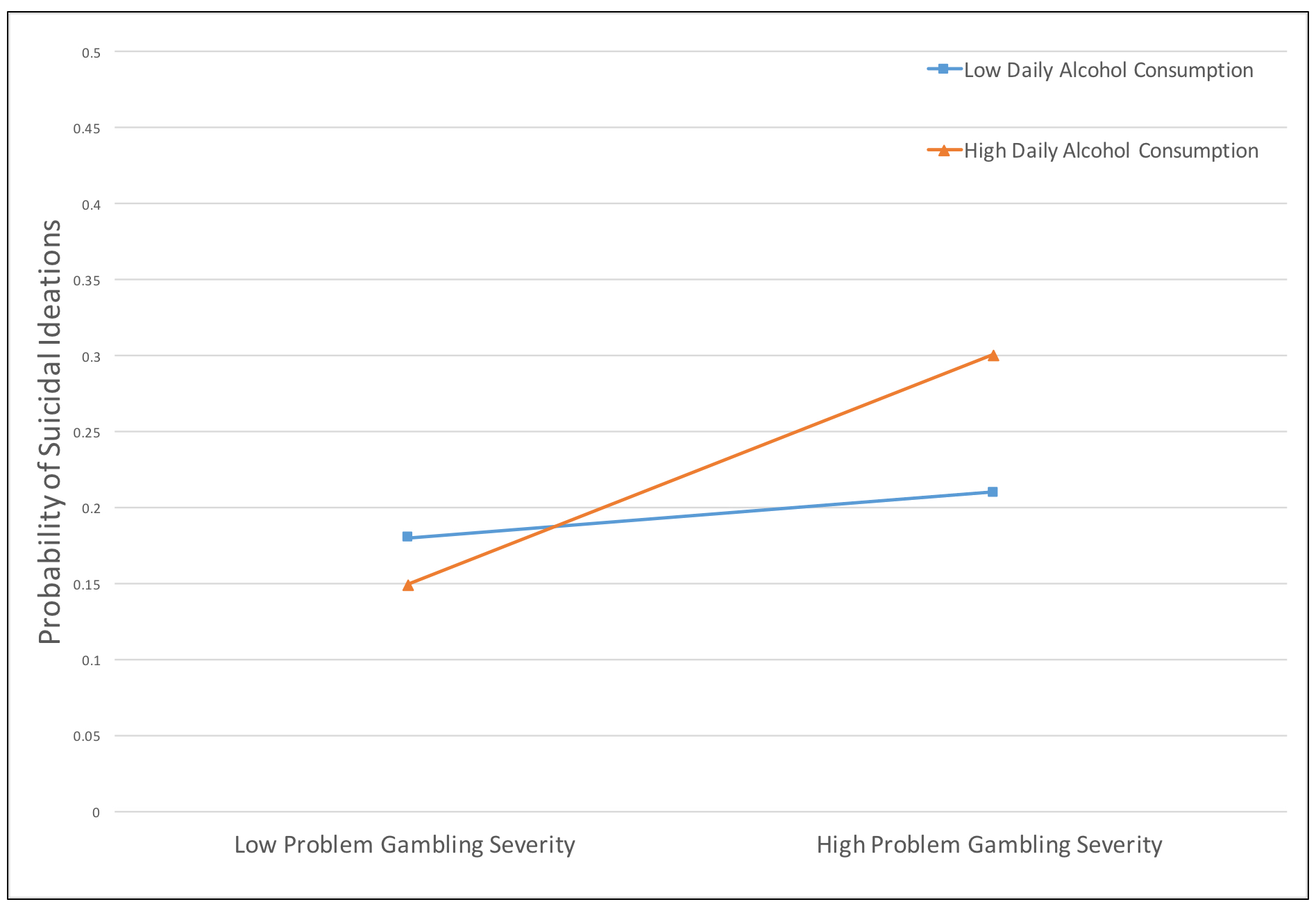The WAGER, Vol. 21(5) – Alcohol use and suicidal ideation among gamblers
Both people with gambling problems and people who abuse alcohol are at increased risk for suicidal ideation. Gambling disorders and substance use disorders, such as alcohol abuse, often co-occur. So what are the consequences for suicidal ideation when these conditions are combined? Some researchers suggest that the use of alcohol increases the odds of suicidal thoughts and attempts among problem gamblers. This week, The WAGER reviews a study by Hyoun Kim and his colleagues that examined how alcohol moderates the relationship between problem gambling and suicidal ideation among gamblers in Canada.
What was the research question?
Does alcohol consumption moderate the relationship between problem gambling and suicidal ideation?
What did the researchers do?
The researchers analyzed data from the Canadian Community Health Survey (CCHS) from a sample of 1,546 Ontario Canada residents who reported gambling, consuming alcohol, and engaging in suicidal ideation during the past year.
What did they find?
After running a moderation analysis, researchers found that for those with low levels of gambling-related problems, alcohol consumption did not significantly predict suicidal ideation. However, among those with high levels of gambling-related problems, greater daily alcohol consumption was associated with more suicidal ideation (see Figure).
 Figure. Probability of past-year suicidal ideation among participants with low or high problem gambling severity, as a function of daily alcohol consumption. (Recreated from Kim et al. (2016).) Click to enlarge.
Figure. Probability of past-year suicidal ideation among participants with low or high problem gambling severity, as a function of daily alcohol consumption. (Recreated from Kim et al. (2016).) Click to enlarge.
Why do these findings matter?
Gambling, although experienced by many as entertainment, has the possibility of being harmful. For some, problems with excessive gambling and alcohol use can create widespread negative consequences. People with gambling-related problems who also struggle with alcohol-related problems might be at a greater risk for suicide than those without alcohol-related problems. It may be useful for treatment providers to recognize this increased risk and create targeted plans to reduce the likelihood of irreversible consequences, like suicide. Gamblers both in treatment and in the general population should be aware of the possible consequences associated with problem gambling and risky alcohol use.
Every study has limitations. What about this one?
It is important to note that the research does not suggest causality. This means that these findings do not show that alcohol causes suicidal ideation amongst people with high levels of gambling-related problems. It is possible that factors not measured in this study contribute to gambling, alcohol use, and suicidal thoughts. The CCHS also does not assess the units of alcohol per drink or include a measure of alcohol abuse symptoms, so it does not provide a detailed assessment of drinking habits.
For more information:
If you or a loved one has a problem with alcohol or gambling please visit our first steps to change here. If you or a loved one is experiencing suicidal thoughts, please click here.
— Alec Conte
What do you think? Please use the comment link below to provide feedback on this article.